 |
Libby Liu served as the inaugural chief executive officer of the Open Technology Fund, and provided strategic leadership and operational direction to meet OTFs mission of advancing Internet freedom around the world. Libby led the successful transformation of the eight-year-old OTF program into an independent stand-alone non-profit corporation, maintaining OTF core values and methodology while ensuring uninterrupted operations during the startup phase for the projects, people, and at-risk communities OTF supports globally. Prior to leading OTF, Libby served as president of Radio Free Asia, where in addition to providing strategic vision, supporting innovative programming, directing editorial and administrative policies and procedures, she coordinated issues in these areas with USAGM, stakeholders, and other organizations to address the regions most pressing issues. Prior to joining RFA, she served as the director of administration and strategic planning at the Baltimore headquarters of the National Association for the Advancement of Colored People (NAACP). There, she played a pivotal role in the boards establishment of the NAACPs five year strategic plan goals and objectives and in the implementation of the plan. Earlier this year she received the 2020 Luxembourg Peace Prize for Technology. |
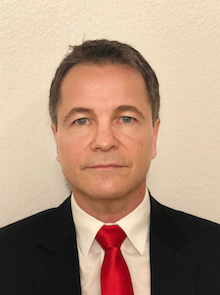 |
Flavio Aggio is the chief information security officer at the World Health Organization (WHO). Additionally, he represents WHO in key forums focused on information security and cybersecurity. Prior to joining WHO, Flavio was the chief technology officer at the city and county of San Francisco, where he developed technology solutions to modernize and protect the city. Before that, he held technical leadership positions in enterprise architecture, project management, telecommunications, and IT operations with Unisys, ASML, Dow Chemical, and Rohm and Haas. In 2014, he enabled the interconnection of the San Francisco and San Jose Wi-Fi networks. The two cities were using a new technology (Hotspot 2.0) allowing smartphones to automatically connect and roam between their two networks, as well as provide a layer of security on what would not normally be available in wide-open public hotspots. Flavio holds a Bachelor of Science in physics from Sao Paulo University in Brazil and an executive MBA from Temple University in the United States. |
 |
Idalin Bobé is the founder of TechActivist.Org, a grassroots organization providing free technical training and political education workshops to working class youth, activists, and disruptors interested in using technology for social good. She is also a founding member of the Popular Education Project, serves on the national education committee of the Poor People's Campaign: A National Call for Moral Revival, and is part of the People's Forum, a movement incubator in New York City. Coming from a poor Afro-Latinx community in North Philadelphia, Idalin witnessed firsthand how the people most impacted by social ills were and still are on the losing side of the digital, educational, and economic divide. That understanding led her to dedicate herself to work directly with organizations that are focused on social change and are part of the communities they serve. Through her tech literacy programs, Idalin provides hands-on workshops introducing communities to digital media tools, digital security, open source, web development, and emerging technology like 3D printing. |
 |
Tiffany Rad is the CEO and founder of Anatrope, Inc., which develops wireless automotive technologies for the security and data analytics industries. She is also an adjunct in the computer science department at the University of Maine's Portland campus and an adjunct at UC Berkeley in the School of Information's cybersecurity program. Prior to starting Anatrope, Tiffany was the manager of operational security for vehicle embedded systems at Cisco and a cybersecurity researcher for Battelle Institute at the Center for Advanced Vehicle Engineering. Her work included vulnerability research on vehicle computers in conjunction with assessing intellectual property laws and legislation as it relates to safety and security in future automotive technologies. She has been presenting vehicle computer security research at security conferences since 2006. |
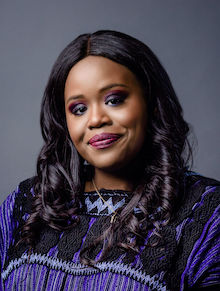 |
Yeshimabeit Milner is the founder and executive director of Data for Black Lives. She has worked since she was 17 behind the scenes as a movement builder, technologist, and data scientist on a number of campaigns. She started Data for Black Lives because for too long she straddled the worlds of data and organizing and was determined to break down the silos to harness the power of data to make change in the lives of Black people. Yeshimabeit has helped change the conversation around big data and technology across the U.S. and globally. She is an Echoing Green Black Male Achievement Fellow, an Ashoka Fellow, and joins the founders of Black Lives Matter and Occupy Wall Street in the distinguished inaugural class of Roddenberry Foundation Fellows. In 2020, Yeshimabeit was honored as a "Forbes 30 Under 30 Social Entrepreneur." |
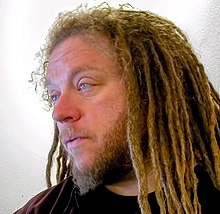 |
Jaron Lanier is an American computer philosophy writer, computer scientist, visual artist, and composer of classical music. Considered a founding father of the field of virtual reality, Lanier left Atari in 1985 to co-found VPL Research, Inc., the first company to sell VR goggles and gloves. In the late 1990s, Lanier worked on applications for Internet2, and in the 2000s, he was a visiting scholar at Silicon Graphics and various universities. In 2006 he began to work at Microsoft, and from 2009 has worked at Microsoft Research as an Interdisciplinary Scientist. His most recent book is Ten Arguments for Deleting Your Social Media Accounts Right Now. |
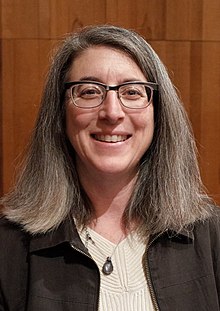 |
Cindy Cohn is an American civil liberties attorney specializing in Internet law. After serving for 15 years as Legal Director and General Counsel for the Electronic Frontier Foundation, she became its Executive Director in 2015. In 2006, Cohn was named one of the 100 most influential lawyers in America by the National Law Journal. In November 2018, she was featured among Americas Top 50 Women In Tech by Forbes. Cohn also serves on the Board of Directors of the Tor Project, Inc. |
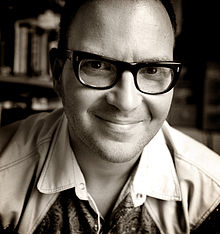 |
Cory Doctorow is a Canadian-British blogger, journalist, and science fiction author who served as co-editor of the blog Boing Boing. He is an activist in favor of liberalizing copyright laws and a proponent of the Creative Commons organization, using some of their licenses for his books. Some common themes of his work include digital rights management, file sharing, and post-scarcity economics. His most recent novel is Walkaway (2017) and his most recent collection of novellas is Radicalized (2019). |
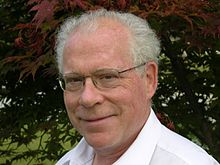 |
Richard Thieme is a former priest who became a commentator on technology and culture, founding the consulting firm ThiemeWorks. He is the author of the syndicated column Islands in the Clickstream, which was published in 60 countries and in 2004 was turned into a book of the same name. In 2010 he published a book of short stories (Mind Games) and in 2012 he contributed to the peer-reviewed academic work, UFOs and Government, a Historical Inquiry. Regarded as a member of the cyber avant-garde, Thieme has spoken at various conferences since the mid-1990s, focusing on the impact of new technologies on individuals and organizational structures, with an emphasis on security and intelligence, and he has become somewhat of a father figure to many in the hacker subculture. |









